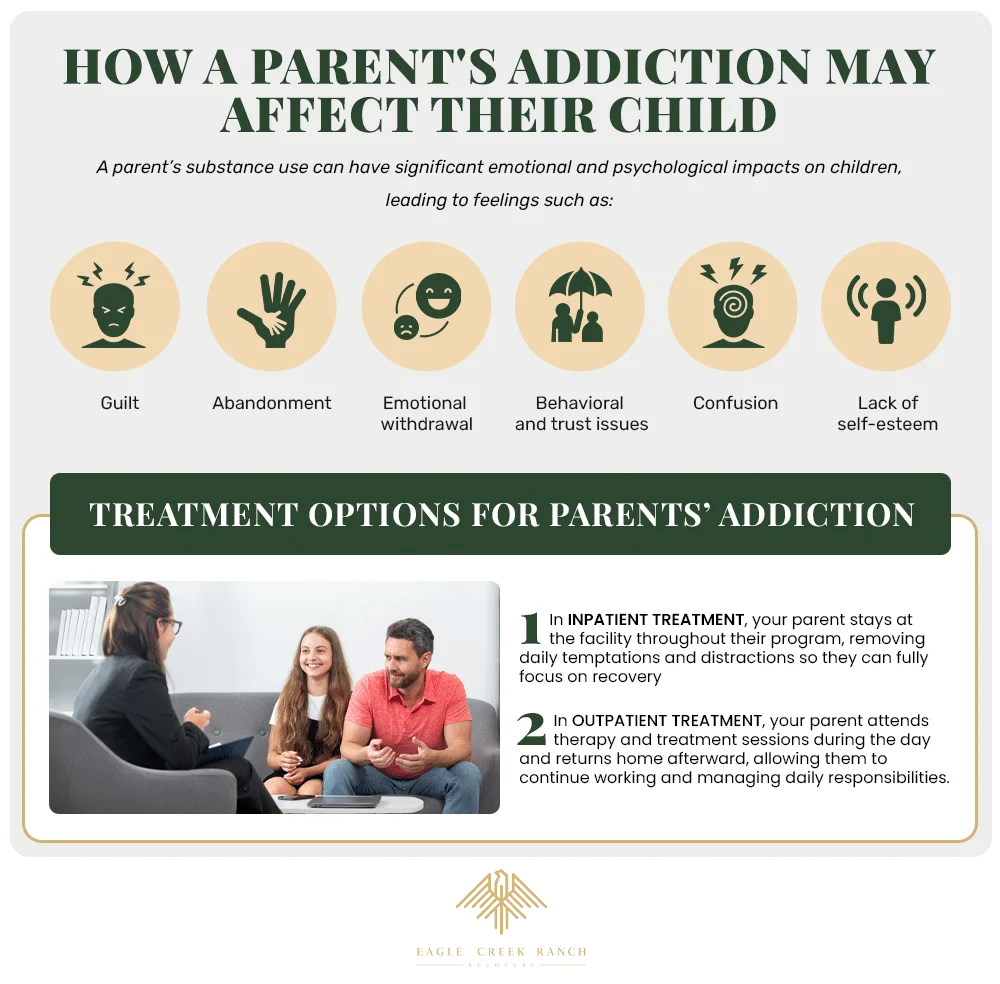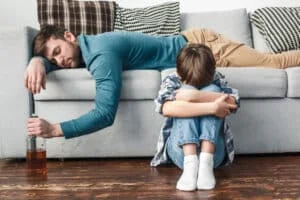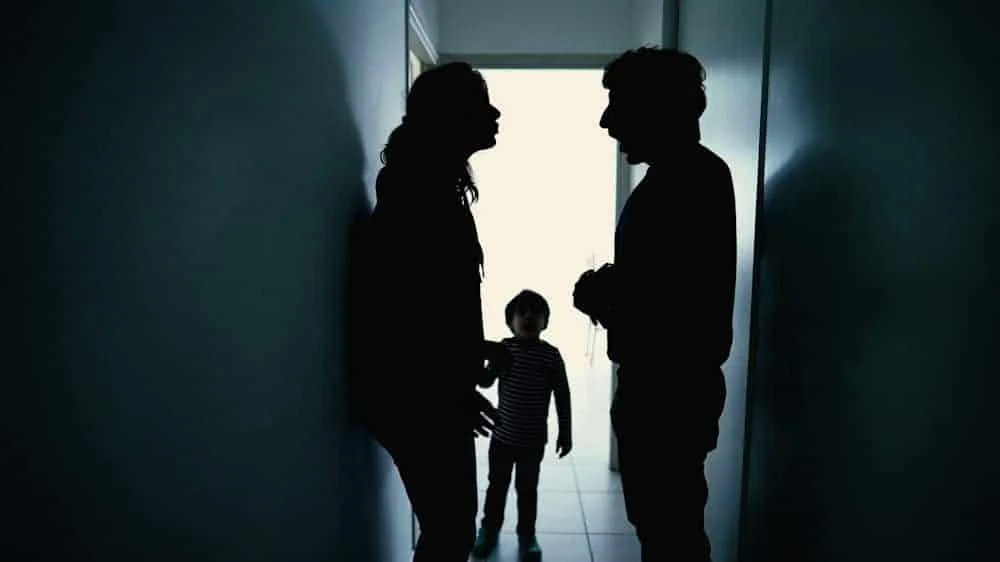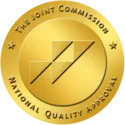Guide for a Child of an Addict
Having a family member that suffers from addiction can be a challenging and overwhelming experience, especially if that family member is living in the same household. When that family member is the parent or parents of a child or children, it can make matters even more complicated.
In many cases, the child of an addict may feel as though they don’t have necessary support from their parent because of their addiction. They may not have a strong emotional bond with their parent, or the entire family system may be tilted toward taking care of the addicted parent. Children of parents who abuse drugs often face neglect and emotional turmoil, which can lead to internalized feelings of guilt, anxiety, and anger. If the child is older, they may feel as though they have to be the one responsible for keeping the house in order.
If you are the child of an addict, it’s important to remember that you are not alone in this journey. Keep reading to learn about the resources and support available as well as ways you can deal with an addicted parent while also not sacrificing your overall health and well-being.


For some children, it may be difficult to fully recognize and understand if their parent is struggling with substance abuse or addiction. Depending on the age of the child, the parent may also try and hide their addiction, waiting until after they have gone to bed to use or only use when they are out of the house. If the parent is using an illicit drug, they may wait until the child is asleep to purchase or use the drug.
A parent’s substance use can have significant emotional and psychological impacts on children, leading to feelings such as:
- Guilt
- Abandonment
- Emotional withdrawal
- Behavioral issues
- Confusion (especially if their parent also has a mental illness)
- Challenges with trust and self-esteem
Some children may have behavioral problems in school or social situations because they may not have the ability to express their feelings about their home situation. Adult children of addicts may recognize these feelings over time and feel anger over how their parent’s drug abuse affected their upbringing. Children of any age may feel responsible for their parent’s addiction and will likely have a higher risk of developing drug abuse problems in their own lives.
While no child wants to see their parent struggle, being able to properly identify the signs substance abuse and addiction can be a crucial first step in getting them the help they need. Helping a parent seek addiction treatment before their addiction continues to worsen may make a major difference in their path to recovery.
If you suspect that your parent may be struggling with substance abuse or addiction, below are some common signs to be on the lookout for:
- Changes in behavior: Mood swings, irritability, or aggression
- Neglecting responsibilities: Not going to work, not keeping the house clean, not going grocery shopping, etc..
- Changes in physical appearance and personal hygiene: Not showering, looking unkempt, bloodshot eyes, drastic changes in weight, etc..
- Acting secretive: Hiding substances and/or paraphernalia, lying about using substances, frequently disappearing, etc..
- Relationship problems: Problems developing in relationships with other family members or friends due to substance use.
- Financial problems: Development of unexplained financial problems or debt that didn’t previously exist.
- Legal problems: Getting arrested or being stopped by police for drug or alcohol-related issues.
How Children of Addicts Can Find Support
When it comes to helping a parent with addiction, seeking help outside of the home is crucial. School counselors can offer a safe space for children to express their concerns and provide guidance on accessing community resources. Support groups such as Al-Anon provide specific support for family members of individuals struggling with addiction, including children of addicted parents. Mental health professionals are also available to help children and families navigate the challenges of addiction and provide coping strategies.
Important Things to Keep in Mind with an Addicted Parent
For a child, helping a parent that is struggling with addiction can be a tough thing to navigate. After all, traditionally the parent is supposed to be the one that is there to help guide and support the child.
When attempting to help an addicted parent, it’s important to express concern and let them know that you are here to help them should they want help. It’s important to remember that you can’t make them get help if they don’t want to help themselves. Make sure and set boundaries for yourself and seek professional support and guidance to protect your overall mental health and well-being.
It’s important to avoid blaming or judging your parent for having an addiction, as addiction is a complex disease that requires empathy and understanding. But it is also important to try and avoid “bailing them out” and taking on adult responsibilities around the house, as that may enable them to feel like they can keep using without any consequences..
Contact Eagle Creek Ranch Recovery
Today!
Why Wait? Find The Help You Need By Reaching Out To Us Today! Our Admissions Team Is Standing By.
How Children can Cope with a Parent’s Addiction

While it is important to be there to help and support your addicted parent, it is also important that you make sure to take care of yourself. Many people, whether children or adults, often neglect themselves when caring for and trying to help an addicted loved one. Remember that you are the child, and it’s not wrong to want to have fun or do light-hearted activities.
Adult children of drug addicts face unique challenges, including feelings of guilt and long-resonating impacts on their emotional and psychological well-being. It is crucial for them to seek help (such as in individual therapy or support groups) to cope with these lingering effects and build resilience for a healthier future.
If you are the child of an addicted parent, seeking support from a trusted individual is crucial. Watching a parent struggle with substance abuse and addiction can take a toll on a person mentally and emotionally. This person can be a friend, family member, or a mental health professional. The key is to find someone that you are comfortable talking and expressing your emotions with.
Treatment Options for Parents
If your parent has agreed to get help for their substance abuse or addiction, it is important to know the available treatment options.
One of the more successful treatment options is inpatient treatment. During inpatient treatment, your parent will live at the facility for the full length of their treatment. Inpatient treatment eliminates the temptations and distractions that come with daily life and allows them to focus all their energy on getting sober.
If your parent is unable to participate in inpatient treatment for any reason, another option for them is outpatient treatment. With outpatient treatment, your parent will go to the treatment center during the day for their therapies and treatment activities and return home at the end of the day. This would allow them to keep working and taking care of daily responsibilities while also undergoing treatment.
Eagle Creek can Help Families Heal from Addiction

Growing up with an addicted parent can be an incredibly challenging experience, but it’s important to know that they are not alone.
At Eagle Creek Ranch Recovery, we understand the unique and complex nature of having an addicted parent. That’s why in addition to our inpatient and outpatient treatment, we also offer family therapy for parents that are addicted to the following:
- Meth
- Cocaine
- Heroin
- Benzos
- Alcohol
- Opioids
- Fentanyl
If you have a parent that is struggling with substance abuse and addiction and are looking for ways to get them the help that they need, contact us today. We will not only work to help your parent, but we will help the entire family cope as well.

Clinical Director
Kendall Maloof is the clinical director at Eagle Creek Ranch Recovery. She is a licensed marriage and family therapist and has held multiple leadership roles before settling here at Eagle Creek Ranch Recovery. Kendall received her master’s degree in marriage and family therapy from the Chicago School of Professional Psychology in 2016. Her career in mental and behavioral health began in 2014 when she took up internships in both the nonprofit and for profit sectors. She interned at multiple reputable companies, such as The Living Success Center and 449 Recovery in California.
In 2019, Kendall became the clinical director of Sunsets Recovery for Woman, a dual diagnosis program in southern California. Kendall is a natural leader. She has an incredible ability to problem solve and stay calm in any situation. Kendall never fails to show up when she is needed, and her calm demeanor makes her team and clients feel at ease. Eagle Creek Ranch Recovery is proud to have Kendall as our clinical director.


